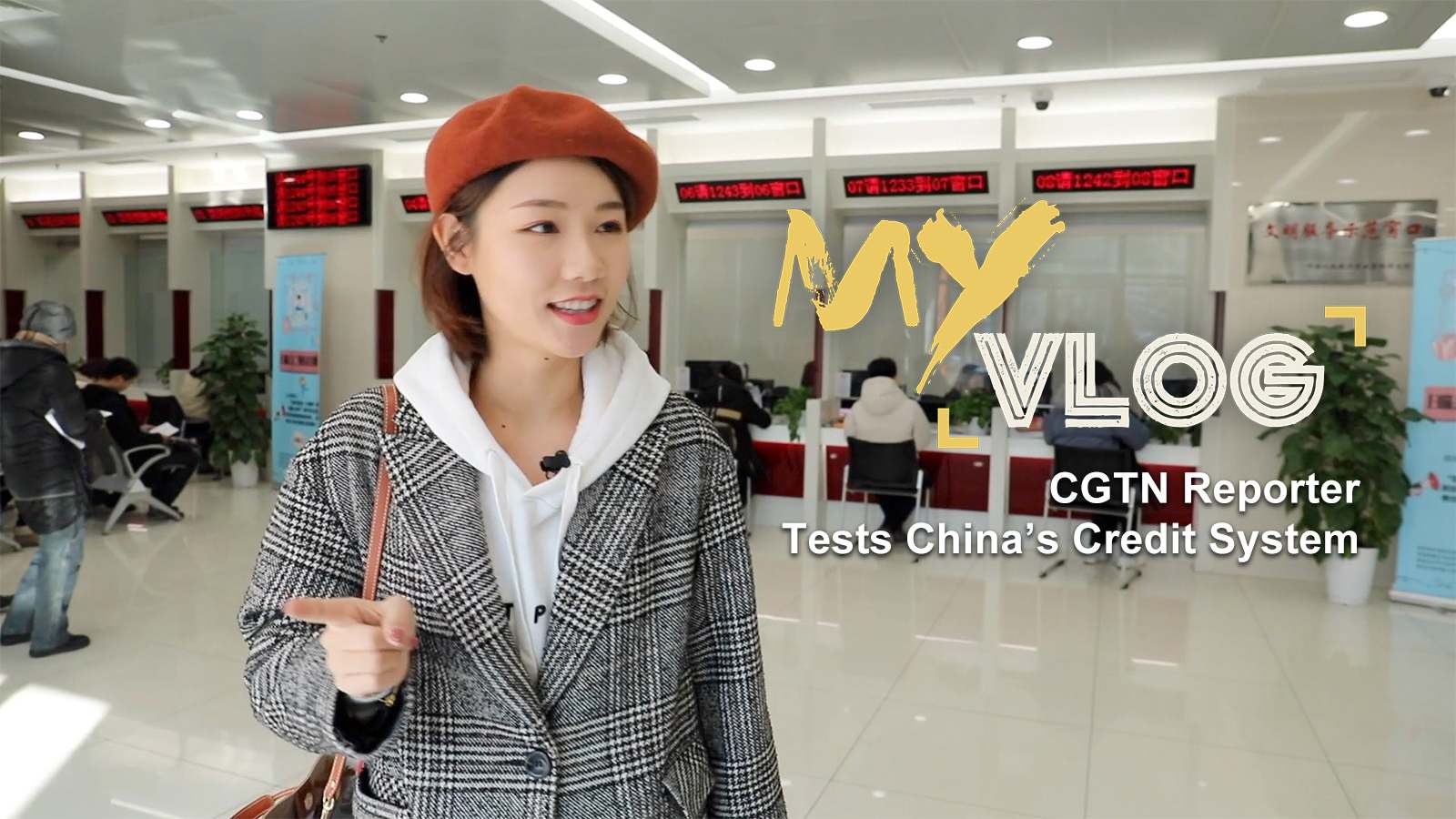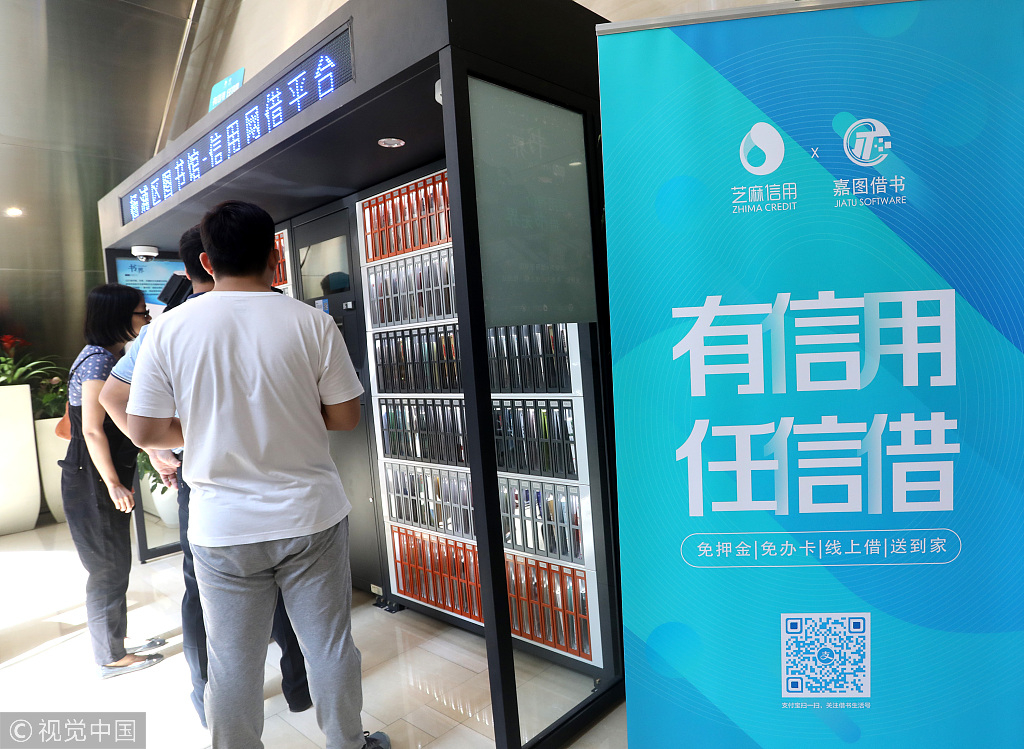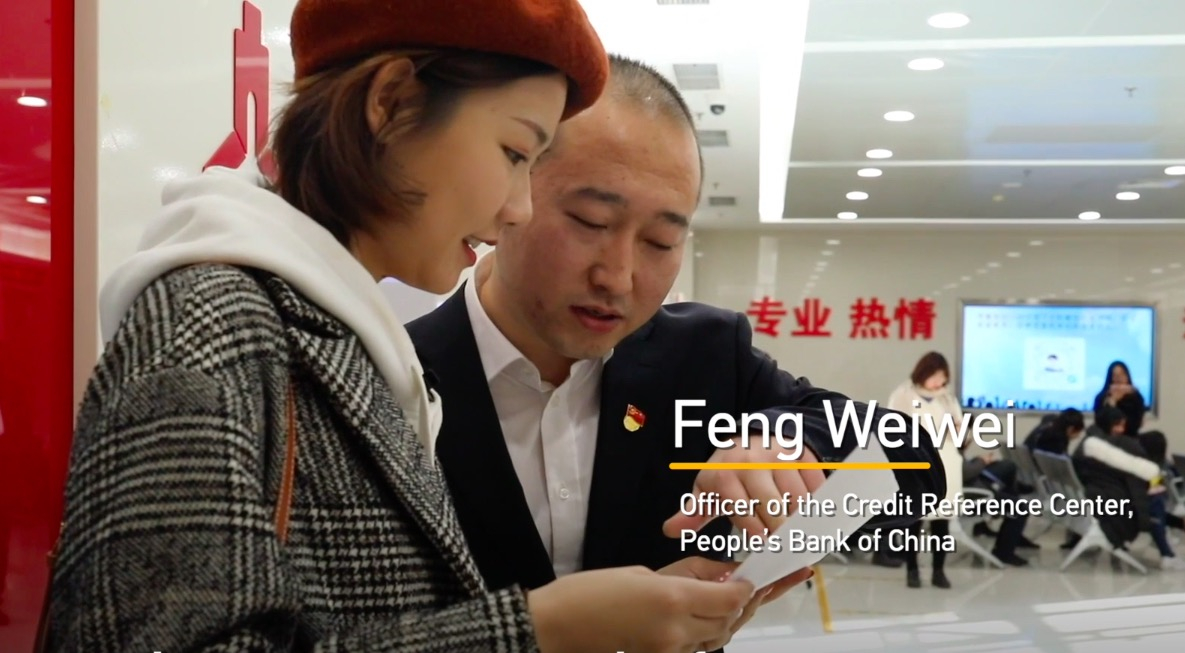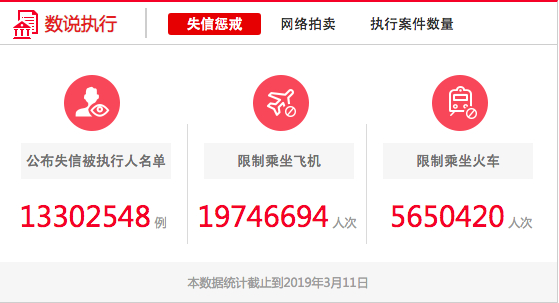
Domestic
19:38, 12-Mar-2019
My vlog: Social control or social credibility? CGTN reporter tests China’s credit system
Updated
11:23, 14-Mar-2019
CGTN
05:37

In 2014, the Chinese government officially announced a plan to build up a national credit system, and the Western media has been criticizing the idea ever since.
The system is accused of being a statewide surveillance apparatus that categorizes citizens in a way that could cause discrimination and violate their human rights.
It has also been said that the huge project will not be able to evaluate citizens fairly, as data collection standards can be vague and subjective.
What is the truth about this “demonized” system? CGTN reporter Liu Chen tested each part of the existing credit system and tried to examine its transparency, neutrality and trustworthiness
Private sectors' credit report has wide reaching applications
In 2015, Alibaba subsidiary Ant Financial launched a commercial credit system called Zhima Credit. It is an independent private credit system.
The credit accumulating process is not complicated. Your shopping habits, bank statements and how and when you pay your bills will affect your score on Zhima Credit. It is a smooth but long-term process.
Liu Chen used her personal Zhima Credit to successfully rent a bike and a car without needing to leave a deposit.

"For people who are like me, who don't own houses or cars, and who don‘t have credit cards, traditional banking data isn't enough to measure our financial situation," said Chen.
"This helps me access more social services. It removed obstacles, and encouraged me to try things out."

Zhima Credit can be used to borrow books in Shanghai. /VCG Photo
Zhima Credit can be used to borrow books in Shanghai. /VCG Photo
The Zhima Credit report is also accepted as a part of the personal financial statement needed to get a tourist visa for certain countries.
Government credit system builds under constitutional surveillance
Apart from commercial credit system operated by private sectors, the government has been working on building up a nationally-coordinated social credit system separate from the commercial one.
Two components of the government's credit system have been established. The first one is the Credit Reference Center of the People's Bank of China. In its Beijing branch, Liu Chen printed out her first personal credit report.
"This personal credit report used to be required only in debit card applications, getting a loan, and other commercial situations," Feng Weiwei, an officer of the Credit Reference Center in Beijing told CGTN. "However, in recent years, the report is required in employment interviews, getting job promotions and registering certification exams."

In 2018 alone, the number of personal credit report inquiries reached 1.05 million.
Feng also stressed that "all the information recorded in the credit system is from commercial institutions, which are authorized to share the information of their customers."
If people successfully take part in the system, they are rewarded. And those who break the rules will pay for it.
People who have failed to fulfill court orders will be named on the List of Dishonest Persons Subject to Enforcement by the Supreme People's Court, which is the second component of the government credit system.
They are unable to travel on planes and high-speed trains in China. People with low ratings will also be restricted from entering high-end restaurants, nightclubs and even golf courses. The scores will also influence a person's ability to rent property and their ability to get financial aid in the form of insurance or loans.

Screen shot of the Supreme People's Court website shows over 19 million people have been banned from taking flights. /CGTN Photo
Screen shot of the Supreme People's Court website shows over 19 million people have been banned from taking flights. /CGTN Photo
As of February 2019, over 19 million people have been banned from taking flights due to social misdeeds.
The idea of personal scoring systems has been used in the west for decades. The idea itself is not a Chinese phenomenon.
The credit system can be considered by many as a simple and effective way to measure and enhance trust nationwide and to build a culture of sincerity.

SITEMAP
Copyright © 2018 CGTN. Beijing ICP prepared NO.16065310-3
Copyright © 2018 CGTN. Beijing ICP prepared NO.16065310-3